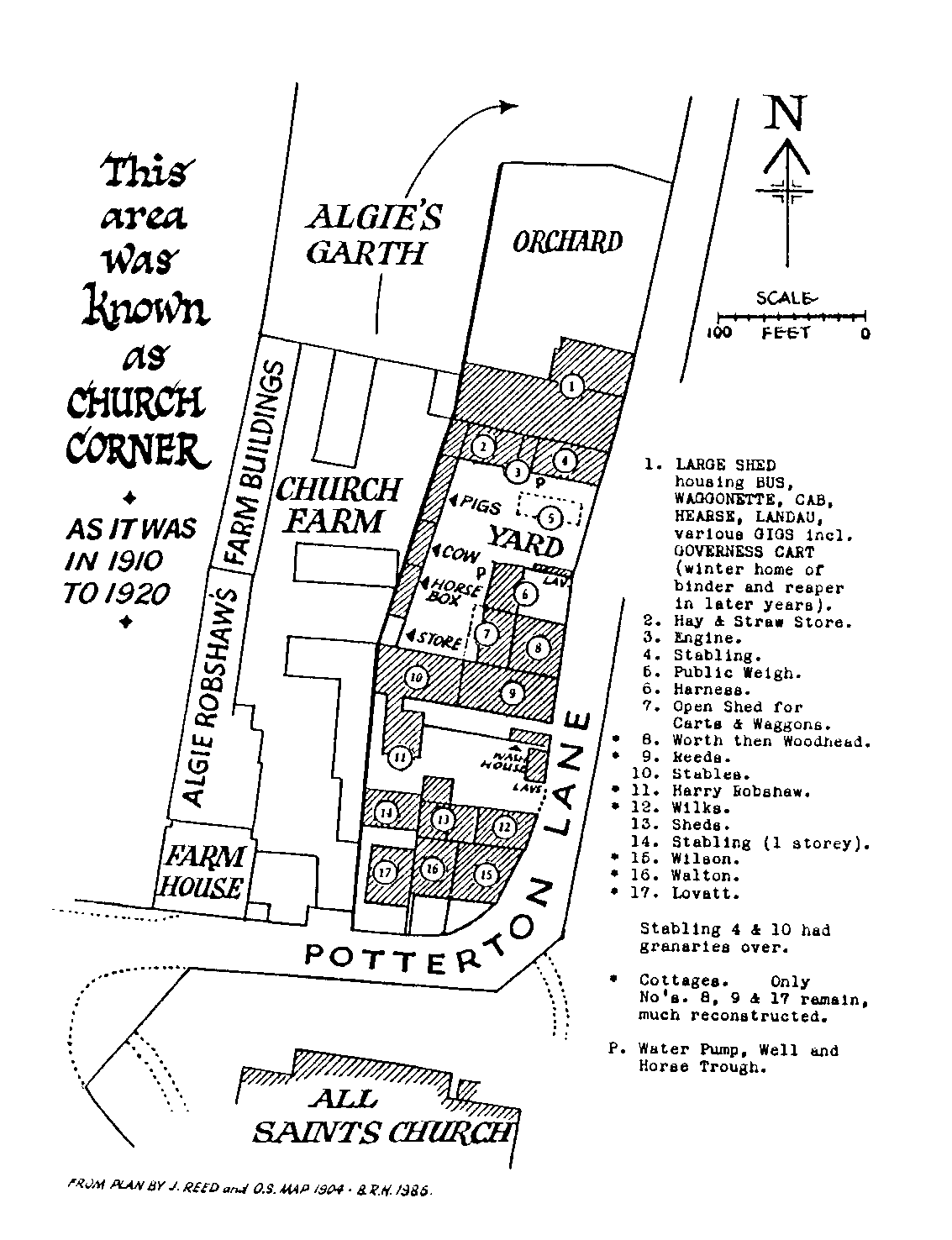 |
 |
| (1) Light transport used to carry passengers and luggage, like a
present taxi service, to Scholes and Garforth stations, etc.
The vehicles included gigs, a cab, a landau for weddings, a
governess cart and a hearse. For the wedding of one particular lass,
he bought a special pair of greys, and for another, a pair of bays,
but these were sold soon after. (2) Public transport. A two-horse bus ran to Vicar Lane, Leeds, on Tuesdays and Saturdays. (3) Wagonettes, drawn by two or three horses, took parties about the district. Every Saturday either football or cricket teams were conveyed to local villages. (4) Heavy transport. Wagons were used to carry hay and straw, wood for the local saw mills, and for furniture removal. In 1923, he took a load of furniture in a one-horse wagon from Barwick to Scarborough in one day, starting at l.00 a.m. and arriving in Scarborough at 4-00 p.m. Whilst they were unloading, a tram passed and the horse ran away with the half-load of furniture. This shows how fit and well Fred kept his horses. (5) Carts were used for carrying coal for anyone in the district. The local miners had one ton a month. This load included slack, slates, etc. and when sorted there was 12-14 cwt. of burnable coal. Miners however did not like to pay cartage so, with some of them, my father had an agreement. They did not pay but he received one out of three loads. As a youth I remember having to riddle and sort this coal. The good stuff went into our coal house, the slack went to Pullan's saw mills to mix with wood for the boiler. We received fire wood in payment. (6) Contract work for Tadcaster Rural District Council. We had three horses and carts continually employed emptying ashpits (lavatories) for Scholes and Barwick. In the 1920's, this changed slightly as dustbins and water closets became increasingly installed. A most important contract was the carrying of stones to make and repair roads. (7) We carted thousands of bricks from Scholes station to build houses close by. |